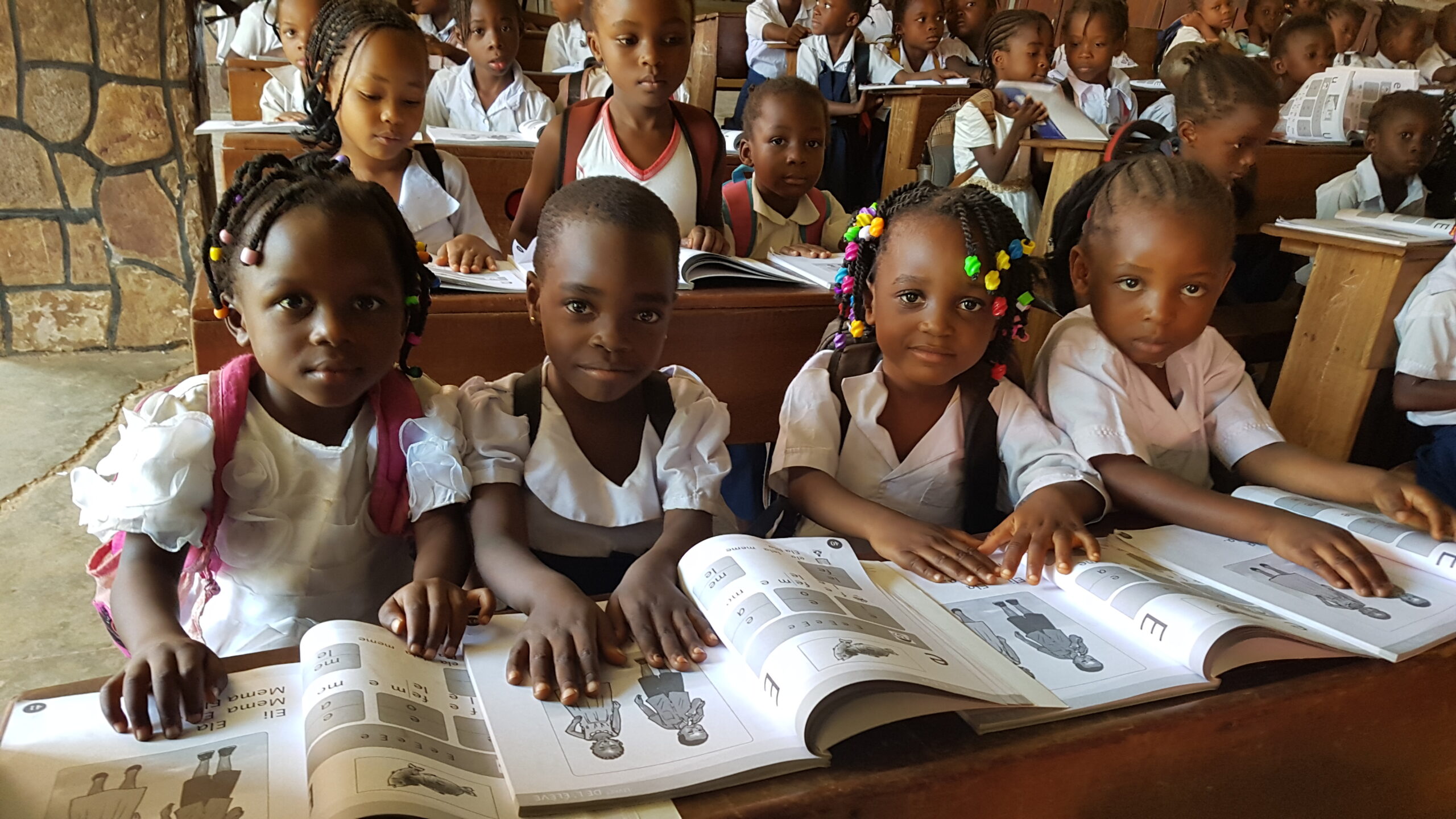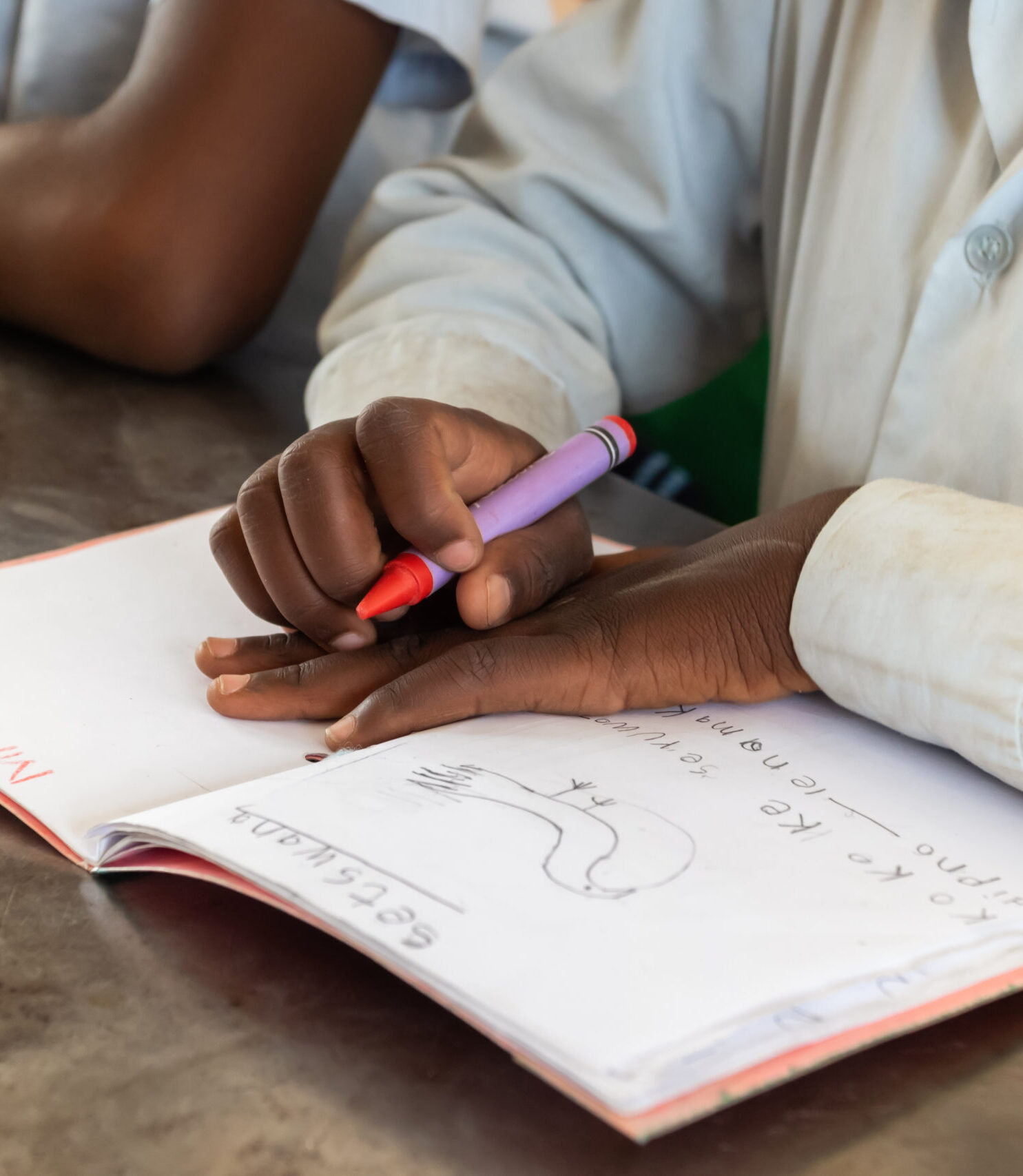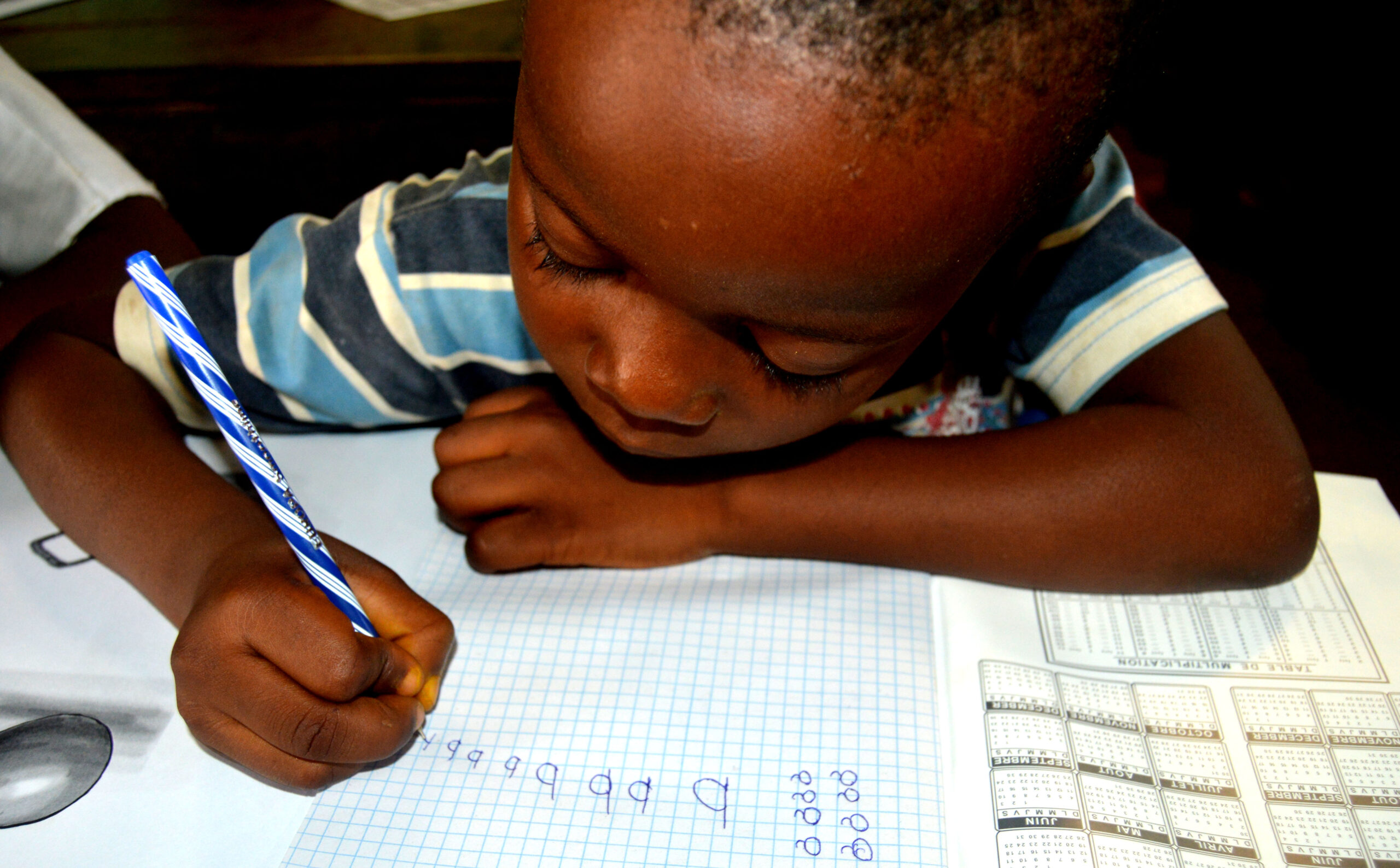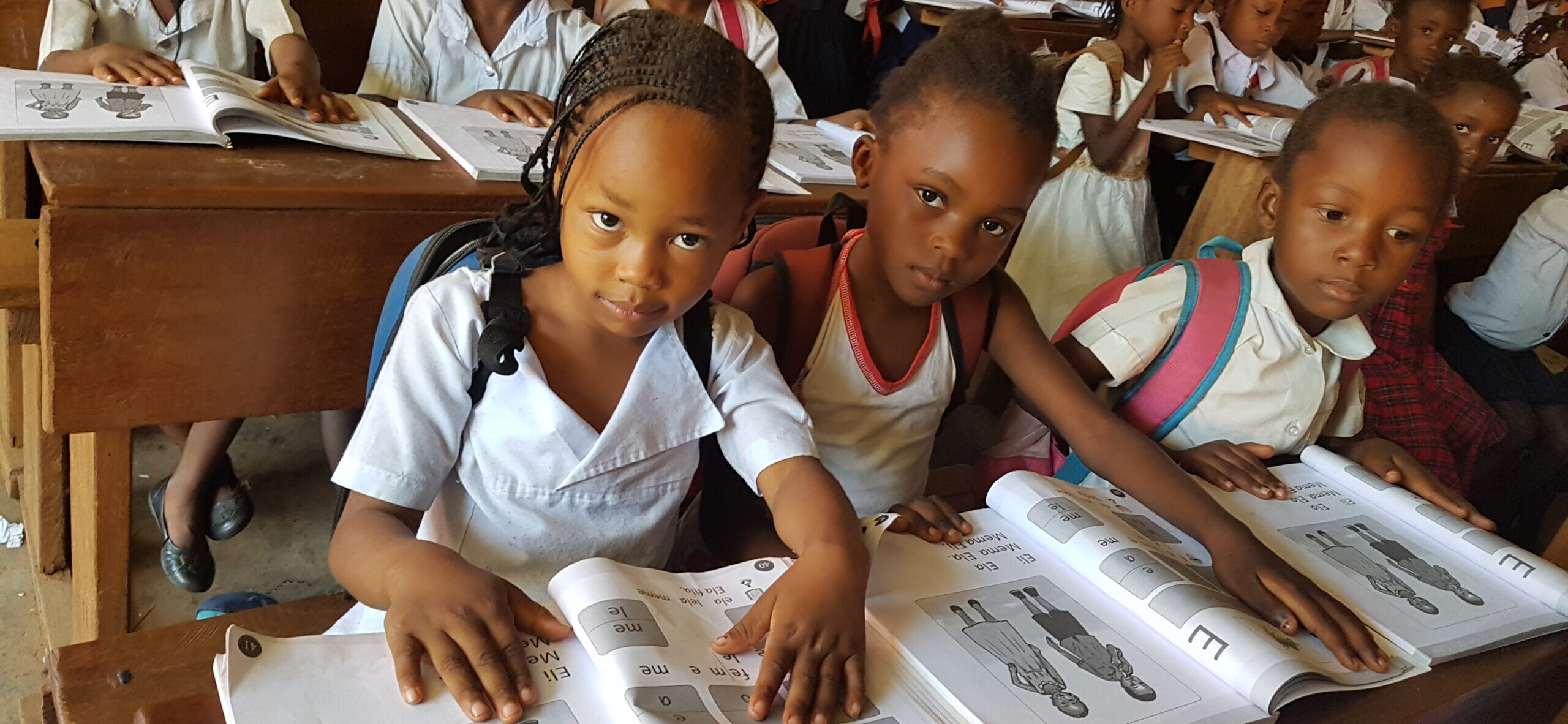Case Study
Transforming Education Systems in the Democratic Republic of the Congo
Strengthening Education in DRC through Systems, Support, and Innovation.
Education Systems

The Challenge
In DRC, persistent political instability, armed conflict, limited resources, and poor infrastructure contributed to low educational access, quality, and equity for children, especially girls. At one point, the government estimated that 3.5 million of the 15 million primary school-aged children were not attending school, and 68% of third and fourth graders could not read simple text.Our Solution
Transforming Education in DRC through Community, Training, and Tools.
With the Ministry of Education, we designed and implemented a multipronged approach to stack proven strategies to support children in attending schools and learning to read in their native language. Specifically, we focused on:
- Developing and Distributing Teaching and Learning Materials: We led the development of high-quality teaching and learning materials in Congolese national languages (Ciluba, Kiswahili, Lingala, and French).
- Designing and Implementing Professional Development: We conducted training and hosted peer support groups for teachers using the new materials. We designed and implemented professional development programs for instructional leaders to coach teachers implementing the new curriculum and related teaching techniques.
- Community Engagement to Support Increased Attendance: To help families pay for prohibitive school fees, we created programs to support income-generating activities and savings groups.
- Strengthening School-Level Governance and Accountability: We supported the Ministry to design and implement policies focused on improved oversight and community participation in school governance. We also supported schools and sub-provinces to regularly assess school performance and plan for improvements. We designed a school monitoring and support framework, and assisted nearly 800 schools in developing school improvement plans.
- Technology Integration for student support. We adapted our curricular support during the COVID-19 pandemic by launching an Interactive Radio Instruction program, “Lecture Pour la Vie (Reading for Life),” to provide distance learning for students during school closures. In assessing impact, 98.2% of survey respondents indicated that IRI was important for their children and 81.4% of respondents listened to 75-100% of segments.


The Impact
Better Access, Smarter Systems, and Stronger Student Outcomes.
Chemonics’ support to DRC contributed substantial results during our 5 year engagement. Notably:
- Teaching and Learning Materials / Book Supply Chain: We developed and distributed nearly 3 million teaching and learning materials to nearly 5,000 schools for use by students and teachers. We improved the book supply chain by standardizing tools and using multiple ports of entry and transit methods.
- Income-Generating Activities and Community Savings: We helped nearly 13,000 vulnerable children complete one year of school through microfinance activities and community savings groups.
- Community Reading Activities: We provided reading kits and conducted community reading activities, leading to higher reading scores in communities with strong parent and community engagement.
- Distance Learning – Interactive Radio Instruction (IRI): We reached over 220,000 learners through distance learning during COVID-19 school closures.
By leveraging expertise in education, governance, and community engagement, we demonstrated significant improvements in education access, quality, and governance in the DRC.
